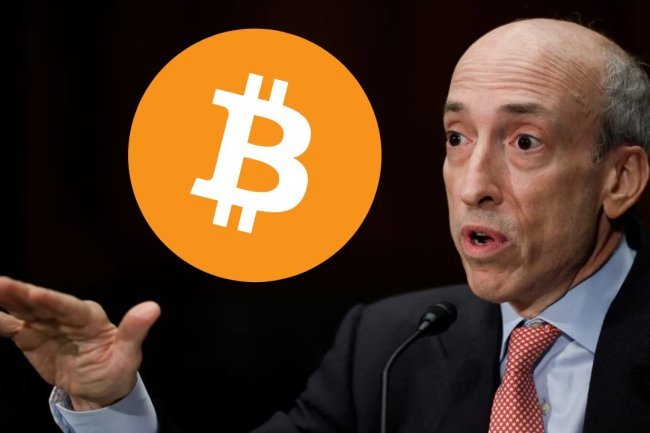Calls for SEC Leadership Change Grow as Crypto Regulation Criticism Intensifies
Calls for a change in leadership at the Securities and Exchange Commission are growing as U.S. policymakers and crypto advocates criticize Gary Gensler's regulatory approach. Arkansas Republican Rep. French Hill has voiced strong support for replacing Gensler regardless of the 2024 election outcome citing widespread dissatisfaction with current digital asset policies. Internal dissent within the SEC reflects broader concerns about innovation and competitiveness in the cryptocurrency sector. As the political landscape shifts the future of Gensler's tenure remains uncertain with significant implications for crypto regulation.

Calls for SEC Leadership Change Grow as Crypto Regulation Criticism Intensifies
U.S. policymakers and crypto advocates are increasingly voicing criticism of Gary Gensler's approach to cryptocurrency regulation prompting growing calls for a leadership change at the Securities and Exchange Commission (SEC) by 2025. Among the most vocal proponents of this shift is Arkansas Republican Rep. French Hill who has taken a firm stance advocating for new SEC leadership regardless of the outcome of the 2024 presidential elections.
Rep. Hill stated emphatically that "no matter who is elected president Gary Gensler should be replaced as chair of the SEC," underscoring a pervasive dissatisfaction with the SEC’s digital asset policies under Gensler’s direction. Hill along with other critics argues that the current SEC leadership has adopted an overly restrictive approach that undermines the United States’ competitiveness in emerging sectors such as cryptocurrency.
Gensler appointed by President Biden has faced mounting criticism from Republican lawmakers who contend that his regulatory strategies stifle growth within the industry. Hill characterized Gensler's tactics as "fear-mongering" asserting that a change in SEC leadership could usher in a more supportive and innovation-friendly regulatory environment that would encourage growth in digital asset markets.
In alignment with Hill's position SEC Commissioner Hester Peirce has also publicly expressed her disapproval of Gensler's regulatory approach particularly concerning oversight of the crypto industry. During a recent Congressional hearing Peirce conveyed her disappointment with the SEC’s registration pathway for digital assets describing it as inefficient and lacking clear guidance. Her comments reflect internal frustrations within the SEC and among the broader crypto community which argues that current policies are stifling innovation and pushing companies to seek regulatory support outside the United States.
This internal division within the SEC raises questions about whether Gensler’s direction is in harmony with the agency’s mission to promote fair and efficient markets. Peirce's remarks resonate with those who believe that a leadership shift at the SEC could enhance the regulatory environment for digital assets and help restore trust within the industry.
The political stakes surrounding Gensler's position may hinge on the outcomes of the 2024 presidential election. Former President Donald Trump has made it clear that he would replace Gensler immediately if he wins the election. Although Gensler’s term is officially set to continue until 2026 a change in administration could prompt his early departure—a common occurrence for agency heads when the presidency shifts parties.
Conversely if Democrats retain control of the White House particularly with Kamala Harris as a potential successor Gensler may continue to enjoy support. Yet even among Democratic lawmakers there is a growing recognition that appointing a new SEC chair could lead to improved relations with the crypto industry.
As discussions on Capitol Hill increasingly focus on the need for regulatory clarity and innovation-friendly policies Gensler’s future as SEC chair remains uncertain. The SEC’s handling of Ripple’s case has further fueled these debates with Ripple filing a C-appeal against the SEC’s ongoing classification of XRP as a security. This situation highlights the complex regulatory challenges facing crypto firms and reinforces the urgent calls for a clearer framework.
Click Here to Visit
What's Your Reaction?
















